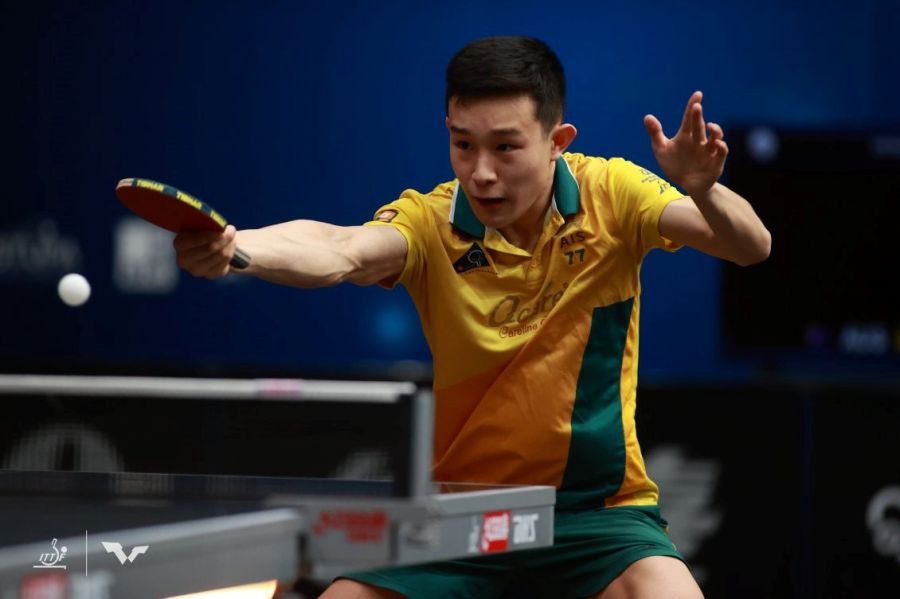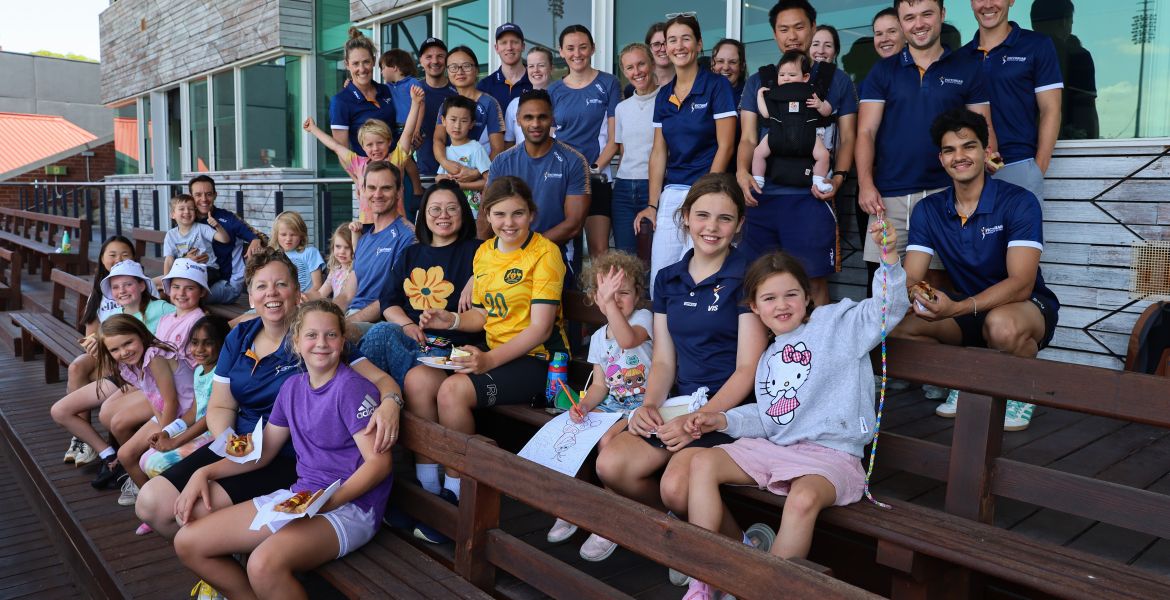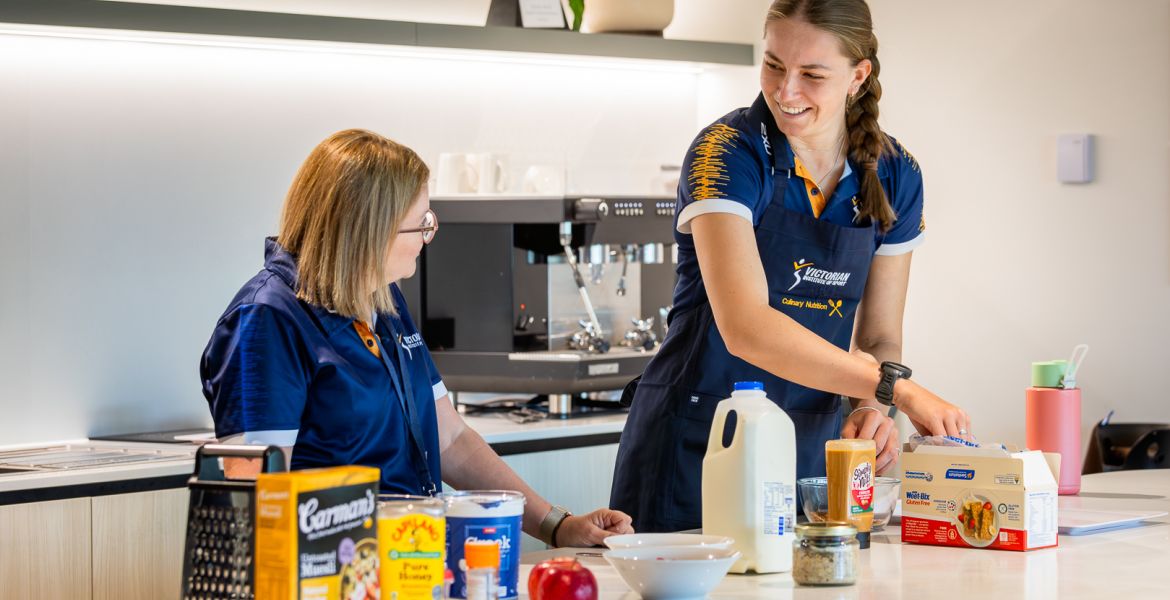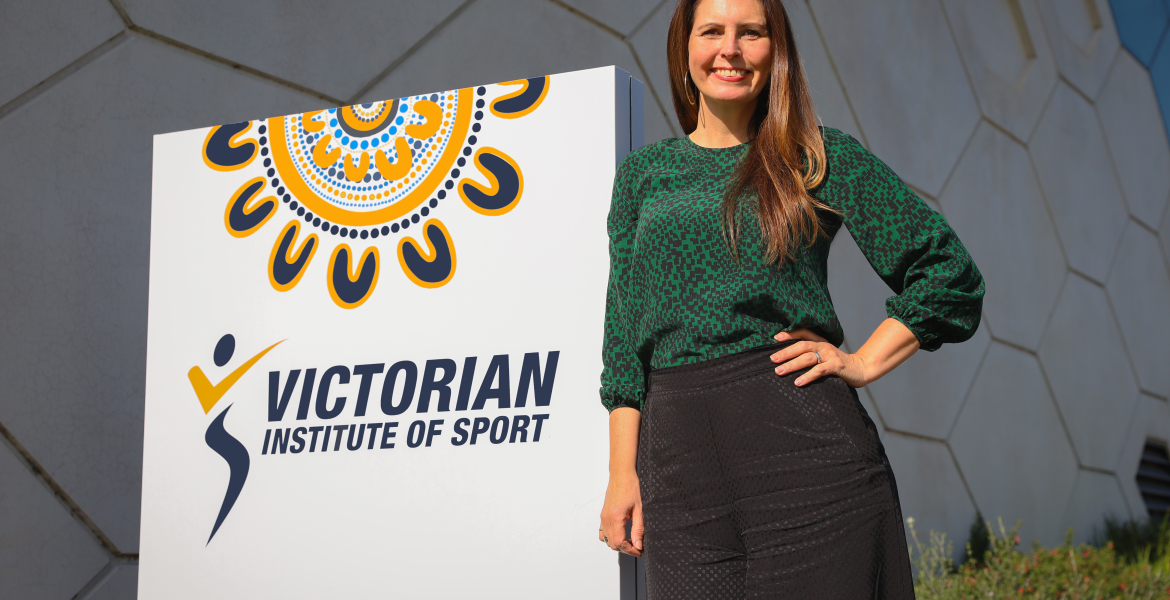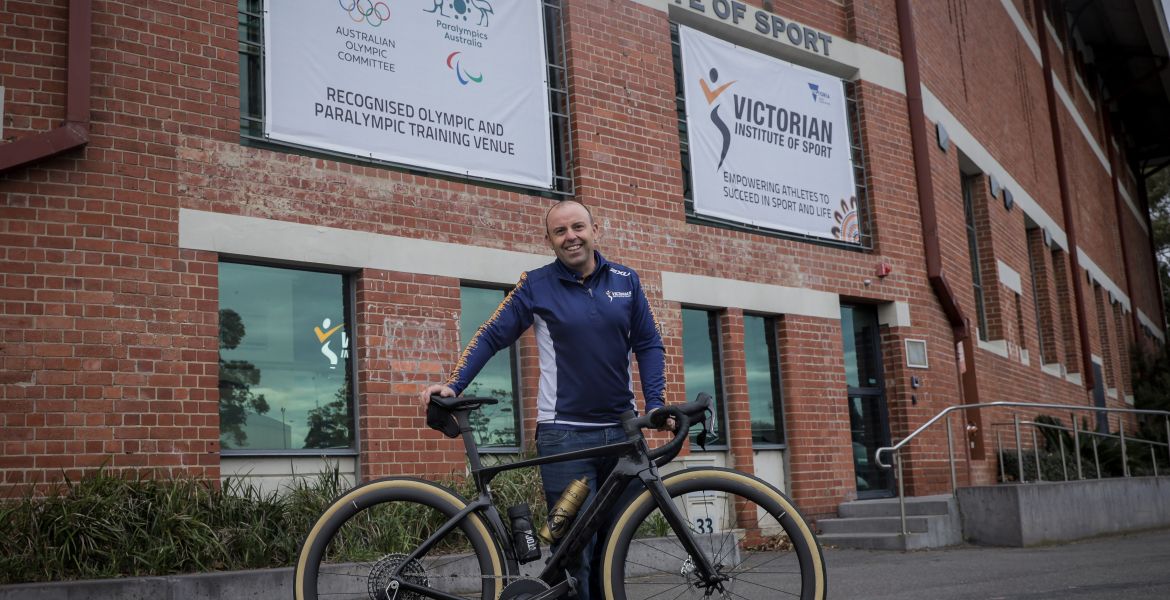The tussle for table tennis supremacy is surprisingly shifting away from the dominant Asian countries, as Europe brings a new wave of innovative ideas to the sport.
Germany is quickly becoming a new home for professional table tennis players from all over the world. The sport’s rise in central Europe, and particularly Germany, has led to the establishment and popularity of premium training academies across the country.
One of the astonishing features of these academies is that they have been solely tailored for table tennis.
VIS superstar and newly appointed director of Table Tennis Victoria, Melissa ‘Milly’ Tapper, explains the shift in global dominance and the utility of the German academies.
“You are starting to see the European countries challenging the Asian countries for results, so what they are doing is definitely working,” Tapper said.
“Our sport can be viewed as a minority, but the fact that these opportunities exist for table tennis athletes is awesome.”
Victorian Institute of Sport and Australian team players Finn Luu and Nicholas Lum are reaping the benefits of one of these bespoke programs, in their case at Liebherr Masters College in Ochsenhausen, near Munich.
“The college is one of the best training centres in Europe,” says Luu who, with Lum, narrowly missed a medal in the doubles at the Birmingham Commonwealth Games.
A string of impressive performances by the VIS athletes has shown that they belong on the global stage. Luu, aged 19, currently ranks 52nd in the world. Lum, aged 18, is the highest ranked male in Australia currently positioned 35th. They are among as many as 10 Australian players in Germany, although their fellow rising star, Aditya Sareen, is not among them.
Sareen, also a VIS scholarship holder, is the number one ranked player in the world in the under 17 age group, and 41st in open competition, but is based in the United States.
The attraction of these academies deepens due to their association with clubs in the strongest table tennis league in Europe, the German Bundesliga (TTBL). The Liebherr Masters College side in the TTBL is Ochsenhausen.
The college program is aimed at professionals and aspiring professionals, so not just anyone with a keen interest in the sport can join. For a near comparison, think of the famous IMG Tennis Academy founded in Florida by Nick Bollettieri.
Considered one of the best facilities in the world for professionals to improve their craft, Liebherr Masters College program is rumoured to be expensive. The fees and programs on offer at the academy remain unknown to the general public. The institution opts to keep certain details of their operation confidential as well as having a marginal number of online publications mentioning the academy.
Despite the mystery, John Murphy, a previous table tennis head coach for Australia, contacted Liebherr Masters college about Australia’s young stars.
“John was able to establish an agreement with the academy, allowing myself and Nick to train there,” explained Luu.
The prospect of training full-time in Germany at 18 years of age would have been daunting for Luu if his friend Lum wasn’t by his side. The pair have forged a strong friendship and are inseparable inside and outside of the arena. They typically spend nine months of the year in Germany.
“Since we have been 13, we have always travelled to Europe together and it’s made it easier for me to travel with someone I know,” explained Luu.
Accommodation is not covered by Liebherr Masters College, however the academy has struck a partnership with a hotel in Ochsenhausen. The ‘Ringhotel’ is a stone’s throw away from the training facilities, yet another indication of the attention to detail provided by the academy.
The VIS athletes began their training at the college in 2023, after a trial period in 2022.
“Everything in Ochsenhausen is very table tennis focused. The players that come here have one goal, which is table tennis and they want to become as good as possible,” Luu says.
“We complete 25-30 hours of on-table training a week, with two or three 90-minute conditioning sessions.
“It is the best training I can possibly get at the moment and a great environment to develop my skills.”
Training at the college offers the chance for the athletes to face off against some highly skilled professionals. Former French head national coach, Michel Blondel, is on the coaching staff.
“I have trained with Simon Gauzy, a former top 10 player in the world. Established players like Simon are there to provide help,” Luu adds.
Advanced technology, something Germany has a reputation for across many fields, is also used in the ‘making’ of academy players. Liebherr Masters College incorporates SpinSight technology into the training of its athletes. The software provides instant automated motion analysis that creates for the athlete a study of their form; areas of strength, weakness, speed and flight etc.
“Spinsight provides instant feedback on the speed and spin of the ball, which is really helpful,” Luu says.
“The academy also has reaction technology that stimulates your mind to increase your reaction and hand speeds. Ochsenhausen is demonstrating how technology can be integrated into table tennis.”
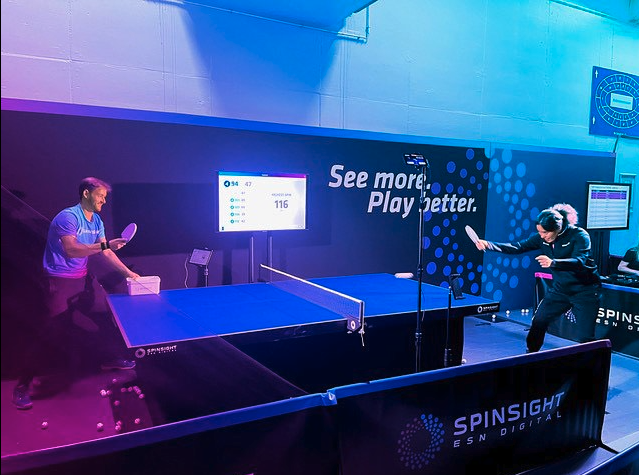
Image: SpinSight table tennis table with real-time feedback technology.
And then there is the competition.
Access to the TTBL is an opening to one of the most competitive table tennis leagues in the world.
“If you are a high enough level, the college may give you the chance to represent Ochsenhausen in the TTBL, which provides quality matches against players that are top 50 in the world,” says Luu.
Tapper believes that the streamlined nature of the program is the decisive point of difference for players, allowing them to focus solely on their on-table performances.
“The academies have everything encompassed into one place. It’s like the VIS but just for table tennis which is awesome,” says Tapper, who would like to see Australia create a table tennis epicentre of its own.
‘We would love to create the same sort of thing in Australia, allowing our athletes to stay at home while establishing a similar environment to that of Ochsenhausen,” the two-time Olympian and Paralympian says.
Luu is in the fortunate position of being able to combine his training in Germany with his VIS program. He is currently back in Melbourne with his sights set on Paris via the Australian Olympic qualification in May.
“The VIS still sets my gym program while at Ochsenhausen, so they are still very involved with my conditioning work that I complete in Germany.”
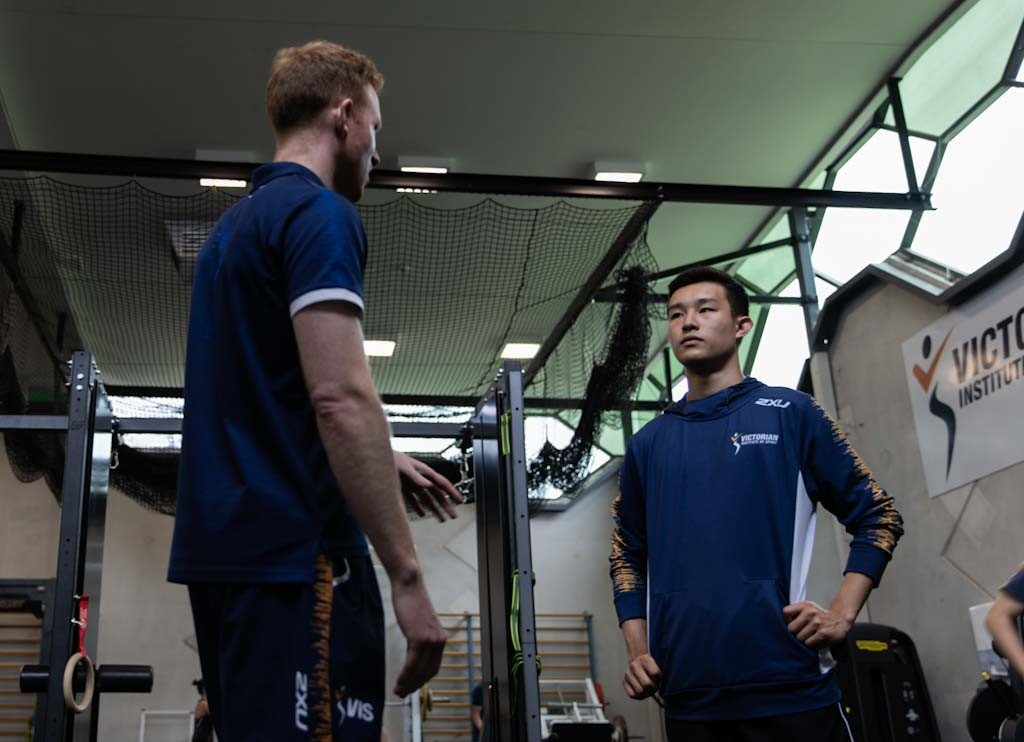
Image: Finn Luu (left) with VIS Physical Preparation Coach, Jarrod Vos

